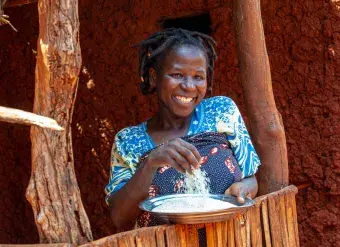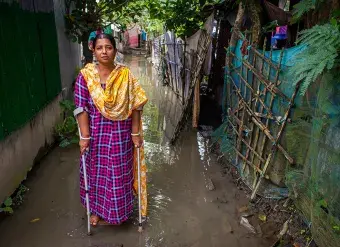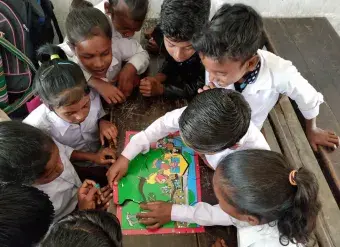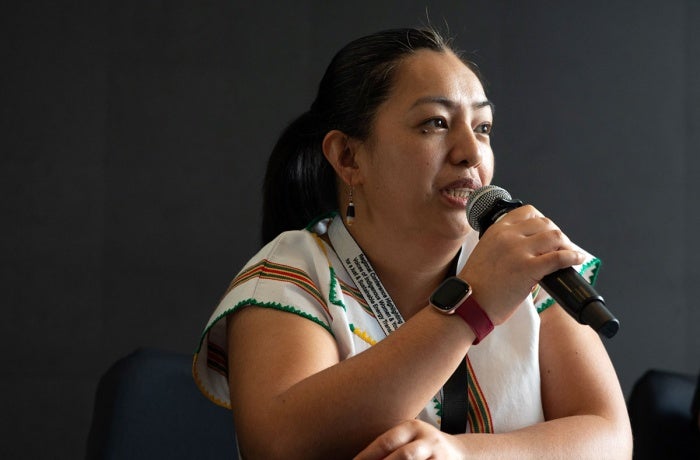Statement: Rural women confronting the global cost-of-living crisis
UN Women Statement for the International Day of Rural Women, 15 October 2022
The cost-of-living crisis facing the world is putting women’s livelihoods, health and wellbeing at risk and jeopardizing progress on the Sustainable Development Goals. Propelled by disruptions in supplies of oil, gas and staple food commodities linked to the war in Ukraine and the intensifying climate emergency, food, fuel and fertilizer prices have skyrocketed. Women and girls face energy poverty, malnutrition and food insecurity as well as related gender-based violence such as sexual exploitation and trafficking, and early, child, and forced marriage.
For the millions of rural women around the world who play essential roles in food systems, the cost-of-living crisis is deepening gender inequalities. Women’s contributions to these vital systems range from cultivation and production, to processing, preparation and distribution of food. Despite this contribution, women globally have less food security than men, and the gap has grown. In 2021, more than 126 million more women than men went hungry.
Without equal access to land and other productive resources, women are not able to accumulate comparable assets, income and savings, and these gaps are widening also. This is especially acute where social protection is lacking and where rural women and girls face other forms of discrimination, including older and indigenous women, women of African descent, gender-diverse persons and persons with disabilities.
The cost-of-living crisis is also reversing progress on access to modern energy as household incomes decline. This has led to a return to use of unhealthy biomass for fuel for cooking and heating, putting rural women and girls at greater risk of death by household air pollution.
This is why there is an urgent need to rethink and reshape global energy and food systems from the bottom up. UN Women has made recommendations for how to do this, in collaboration with the UN Global Crisis Response Group, to achieve a sustainable energy transition and diverse and healthy food production.
Through the Generation Equality Forum, UN Women is working with multiple stakeholders to address some of the root causes and conditions that perpetuate women’s food insecurity. The Feminist Action for Climate Justice Action Coalition brings together diverse actors to build resilience including through cooperative models and women’s land rights and tenure security. The Economic Justice and Rights Action Coalition is working to increase women’s access to and control over productive resources, such as finance, services, and market information which are key for promoting food security and nutrition for all.
Experience of successful approaches to build rural women’s resilience to cascading crises is available in the Joint Programme on Rural Women’s Economic Empowerment, implemented by FAO, IFAD, UN Women, and WFP, which brought an 82 per cent average increase in production, along with gains in diet and nutrition in Ethiopia, Guatemala, Kyrgyzstan, Liberia, Nepal, Niger and Rwanda. Together, this Joint Programme has started its second phase in Nepal, Niger, Pacific Islands, Tanzania and Tunisia with UN Women’s Executive Director highlighting the launch of Phase II in person in Zanzibar ahead of International Rural Women’s Day. Agriculturalists, seaweed farmers and women’s cooperatives and entrepreneurs of Tanzania will be supported by the programme to realize their rights, become empowered and build resilience to shocks such as the global food crisis and climate change.
As we commemorate this International Day of Rural Women, let us act together to end hunger, ensure food security and nutrition, and protect and promote the right to an adequate standard of living and food for all. And to continue this work, the upcoming sixty-seventh session on the Commission on the Status of Women will review ‘Challenges and opportunities in achieving gender equality and the empowerment of rural women and girls. We must ensure that the impacts of and the role of rural women in confronting the global food crisis remain high on the agenda.














